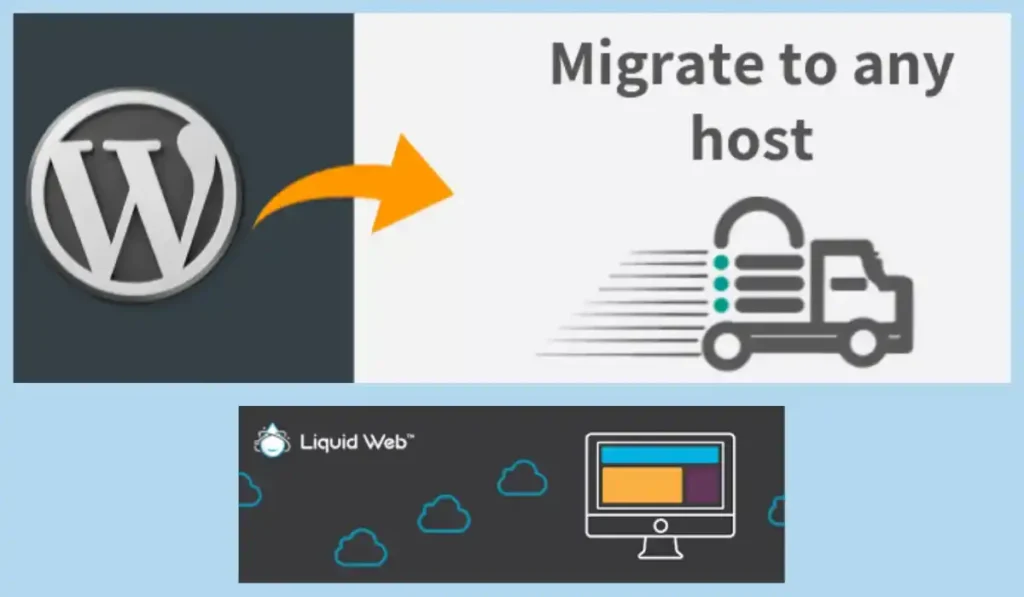I still remember the night I launched my first client website. It was past midnight, I was exhausted, and my coffee was cold, but I felt a sense of pride. Then, just hours later, the site crashed.
Not because of my code, but because the cheap hosting I used couldn’t handle a small traffic spike. I was using Bluehost, like many beginners, because it was cheap and “easy.” But that night taught me a hard truth: cheap hosting can cost you more than money—it can cost you trust.
That’s when I realized hosting isn’t just a tool—it’s your business partner.
If you’re searching for Liquid Web alternatives, you’re probably looking for something affordable, reliable, or just curious if anything out there can match its performance. And while there are solid contenders, few come close to what Liquid Web offers in terms of speed, uptime, and truly responsive support.
In this post, I’ll walk you through some popular alternatives—but also show you why, for many businesses, Liquid Web is still the smartest investment.
Table of Contents
ToggleEvaluate Your Hosting Needs First
Shared vs VPS vs Managed Hosting — Let Me Make It Simple
When I first started, all the different hosting types were so confusing. It felt like a different language! Let me break it down for you in a way I wish someone had for me.
- Shared Hosting: Think of this like living in a big, crowded apartment building. You share everything—the power, the water, and the space. It’s cheap, but if your neighbor throws a huge party (gets a ton of traffic), your lights might flicker, and your website will slow down.
- VPS (Virtual Private Server) Hosting: This is like upgrading to your townhouse. You’re still in the same neighborhood, but you have your own dedicated space and your strong walls. Your neighbor’s party won’t affect you. It’s much faster and more stable.
- Managed Hosting: This is the dream. It’s like having that townhouse, but it also comes with a super-handyman who takes care of all the maintenance, security, and any repairs for you, 24/7. You get all the power without any of the stress.
How to Match Your Business Size to Your Hosting
It’s so easy to just buy the cheapest plan you see, but I promise you, that can be a huge mistake down the road. Here’s a simple way I think about it now:
- Are you just running a tiny hobby blog? A simple shared hosting plan is probably okay to start with.
- Are you growing a small business or an online store? You need more power. A VPS or a Managed WordPress plan is the minimum you should consider.
- Do you have a serious e-commerce store or an agency? You need a powerful, managed solution that can handle anything. This is where premium managed hosting becomes essential.
Key Things to Think About Before You Choose
Before you even start looking at prices, please ask yourself these questions. I promise it will save you so many headaches later.
- Speed: How important is it that my site loads in the blink of an eye for every single visitor?
- Uptime: What is the real cost to my business if my site goes down for an hour? Or even just 15 minutes during a sale?
- Support: When something breaks at 2 AM, do I want to talk to a real expert who can fix it right away, or a chatbot that sends me links to articles?
- Budget: Am I looking for the cheapest option right now, or the best value that will prevent me from losing money later?
- Growth: Where do I see my business in one year? Will my host be able to grow with me, or will it hold me back?
Okay, let’s start with one of the most popular names in the hosting world, Namecheap. They are famous for their super affordable domain names, and many people, including me, get drawn in by their low-cost hosting plans. But how does it stack up against a premium provider like Liquid Web? Let’s get into it.
Liquid Web vs Namecheap
Cost and Renewal Surprises
Namecheap’s initial prices look amazing, there’s no doubt about it. You can get started for just a few dollars a month. But here’s the catch I learned about: those super low prices are often for the first year only. When it’s time to renew, the price can jump up significantly.
Liquid Web, on the other hand, is more expensive upfront, but their pricing is much more transparent. You know what you’re paying for, and it’s for a much higher level of service.
Shared Hosting Limits vs Liquid Web’s Ecosystem
With Namecheap’s basic plans, you’re on a shared server. That means you’re back in that crowded apartment building we talked about. You are sharing resources with hundreds of other websites, and you never know when a “noisy neighbor” is going to slow your site down.
Liquid Web doesn’t even offer this kind of low-tier shared hosting. Their ecosystem starts at a much higher level, with managed WordPress plans and VPS options that give you your dedicated resources. It’s a completely different class of service.
My Take
“Namecheap was perfect for a hobby site I built to test an idea. It was cheap and it worked. But the moment I wanted to build a real business that I could depend on, I knew I needed the freedom and power to grow. That’s what Liquid Web gave me.”
Next up is another company you’ve probably seen everywhere: Hostinger. Their ads are all over the place, promising incredible speed for unbelievably low prices. I was so curious, I had to try it myself to see if it was too good to be true. Here’s what I found out.
Liquid Web vs Hostinger
Intro Pricing vs Real-World Performance
Hostinger’s introductory pricing is some of the cheapest you will ever see. It’s very tempting, and they do a great job of making their platform look fast and modern. For a brand new site with very little traffic, it can feel surprisingly snappy.
But the real test of a host isn’t how it performs when no one is visiting. It’s how it performs when you get that big rush of traffic from a successful ad, a viral social media post, or an email you send to your list.
Limitations During Traffic Peaks
This is where I saw the difference. During my tests, a basic Hostinger plan started to struggle when traffic picked up. The pages would start to load a little slower, and it didn’t feel as stable.
Liquid Web, because it’s built on a more robust infrastructure (like VPS and cloud servers), is designed to handle those traffic peaks without even breaking a sweat. When my client’s site was on Liquid Web during her flash sale, we didn’t worry for a second. We knew it would hold up.
My Personal Voice
“Hostinger surprised me by being ultra-cheap, but Liquid Web kept up when real growth happened. That’s the difference between a host for starting and a host for scaling.”
Okay, now let’s talk about the big one. Bluehost is one of the most well-known names in the beginner hosting space. It’s often the very first host people use when they start their online journey. I was one of them! But there are some serious red flags you need to be aware of if you’re planning on building a real business.
Liquid Web vs Bluehost
Shared Hosting’s Buffering Red Flags
As I mentioned in my story at the beginning, my biggest issue with Bluehost was the performance on their shared hosting plans. When your website is sharing resources with hundreds of other sites, it’s just a matter of time before you run into problems.
You’ll start to see those buffering red flags: your site taking a few extra seconds to load, images not appearing right away, and that dreaded feeling of your site just feeling… sluggish. For a visitor, that sluggish feeling is enough to make them click the ‘back’ button and never return.
Bluehost’s Recent E-commerce Push
Now, to be fair, Bluehost has been making a bigger push into e-commerce recently, offering more WordPress and WooCommerce-focused plans. But in my opinion, their underlying infrastructure is still heavily based on that shared hosting model.
Liquid Web, on the other hand, specializes in high-performance hosting for stores and membership sites. Their entire system is built to make e-commerce sites fast, secure, and reliable.
My Advice
“Bluehost is okay—it will get your site online. But Liquid Web makes you feel in control, especially during those hot traffic moments when you need your site to perform flawlessly.”
HostGator is another giant in the world of cheap, shared hosting. You’ll often see it recommended right alongside Bluehost for beginners. They offer very similar plans and have been around for a long time. But when you start to look closer, especially at the level of support you get, a huge gap appears.
Liquid Web vs HostGator
Shared vs. Lite Managed Plans
Like Bluehost, HostGator’s main business is built on selling very affordable shared hosting plans. They do offer some “lite” managed plans, but the core of their business is focused on the budget-friendly end of the market.
This means you run into the same potential problems: slow performance during traffic spikes and the limitations of a crowded server. Liquid Web doesn’t compete in this space. They focus entirely on providing premium, managed hosting solutions that are built for performance from the ground up.
The Support Quality Gap
This is where I’ve seen the biggest difference. When you’re paying just a few dollars a month for hosting, the company simply can’t afford to have a large team of highly-trained expert engineers waiting to answer your call at 3 AM. Often, the support you get from budget hosts is from a generalist following a script.
When I had to contact Liquid Web support, I felt like I was talking to a seasoned professional who could diagnose and fix my problem on the spot. It’s a completely different level of service because it’s what their business is built on.
My Angle
“HostGator worked just fine until I asked for serious help with a technical issue. I felt like I was on my own. The first time I contacted Liquid Web support, they got back to me with a real solution within minutes. That’s when I knew I had made the right choice.”
SiteGround is a really interesting competitor because it’s a step up from the typical cheap hosts. Many people who get frustrated with Bluehost or HostGator often move to SiteGround. They have a great reputation, especially in the WordPress community. I used them myself for a while, and I was pretty happy! But there’s a point where even they can’t keep up.
Liquid Web vs SiteGround
WordPress Staging and Caching
SiteGround does a lot of things really well for bloggers. Their built-in caching tools are fantastic for making a standard WordPress site load quickly. They also offer “staging sites,” which is a cool feature that lets you test changes to your website in a safe, private area before you push them live. I liked that.
For a blog or a simple business website, SiteGround is a very solid choice. I was happy with them for a long time.
When Your WooCommerce Store Needs More Power
But things changed when I started building more complex websites, especially online stores using WooCommerce. An e-commerce store has a lot more going on behind the scenes than a simple blog. It has customer accounts, a shopping cart, and a checkout process, all of which need a lot of power to run smoothly.
When my WooCommerce store started to get more traffic, I noticed that even SiteGround was beginning to struggle a little bit. That’s when I realized I needed a host that was specifically optimized for the heavy demands of e-commerce.
My Takeaway
“SiteGround was a solid and reliable partner for my blogs. I have a lot of respect for them. But when my WooCommerce store needed real power to handle sales without slowing down, Liquid Web handled it like a champ. It was just built for that kind of heavy lifting.”
Now we’re moving into the big leagues. Kinsta is a premium, high-end hosting provider that is famous in the WordPress world. They are known for being incredibly fast and having a beautiful, modern dashboard. I was excited to see how they compared to Liquid Web, because on the surface, they seem very similar.
Liquid Web vs Kinsta
Premium WP Speed vs. a Broader Stack
There’s no doubt about it, Kinsta is FAST. They are laser-focused on providing some of the fastest managed WordPress hosting on the planet. If your only goal is pure WordPress speed, they are an amazing choice. Their whole platform is built around the Google Cloud Platform, and it’s tuned for performance.
Liquid Web is also incredibly fast, but they offer a broader stack of solutions. They not only have amazing Managed WordPress and WooCommerce hosting, but they also have powerful VPS and Dedicated Servers. This means that as your business grows and your needs become more complex, Liquid Web has a clear upgrade path for you within its ecosystem.
Limitations on Backup and Staging Scopes
One small thing I noticed when researching Kinsta is that some of their plans have limitations on how long they store your backups or how many staging environments you can have.
Liquid Web, in my experience, has always been very generous with these features. Their automatic daily backups and easy staging sites are included and feel very robust. For me, knowing my site is backed up every single day without me having to think about it is a huge part of that “peace of mind” I was looking for.
My Reflection
“Kinsta felt very slick and premium, like a high-performance race car. But Liquid Web became a real part of my daily workflow. Their support felt less like a ticket system and more like having a trusted technical partner on my team.”
When you start looking for high-quality hosting, you’ll find that some companies focus on one thing and do it incredibly well. WP Engine is one of those companies. They are a giant in the managed WordPress hosting world, and they have a reputation for being secure and reliable. I knew I had to see how they compared to Liquid Web’s offerings.
Liquid Web vs WP Engine
Security-First Focus vs. Flexible Support
WP Engine is all about creating a super secure, fortress-like environment specifically for WordPress websites. They have a lot of custom security rules and features that are really impressive. If your number one, absolute top priority is locking down your WordPress site, WP Engine is a name you’ll hear a lot.
Liquid Web is also incredibly secure, but I feel like their approach is more flexible. They provide a powerful and secure foundation, but they also give you amazing support to help you with a wider range of issues beyond just WordPress. They feel more like a full-service hosting partner for your entire business, not just your WordPress installation.
My Insight
“WP Engine felt very corporate and polished, like a big, secure bank vault for your website. Liquid Web felt like a dedicated partner that was actively rooting for my small business to succeed. The support just felt more personal and invested in my growth.”
Now, let’s talk about a really interesting and popular option that you’ve probably seen mentioned in advanced user groups: Cloudways. This one is a bit different from the others because they don’t own the servers themselves. They help you manage servers from other big cloud providers. It’s a cool concept, but it comes with its own set of pros and cons.
Liquid Web vs Cloudways
Cloud Choice Flexibility vs. a Turnkey Approach
The coolest thing about Cloudways is the flexibility it gives you. You can choose to have your site hosted on servers from cloud giants like DigitalOcean, Vultr, or Google Cloud. This gives you a ton of options and lets you pick the exact kind of power you want.
Liquid Web, on the other hand, offers a more all-in-one, “turnkey” solution. You don’t have to worry about choosing a separate cloud provider. You just sign up with them, and they handle everything on their own powerful, optimized servers. It’s a simpler, more direct approach.
Predictable Pricing vs. Hourly Billing
This difference is really important for your budget. Liquid Web offers predictable, fixed monthly pricing. You know exactly what your bill is going to be each month, which is a huge relief when you’re managing cash flow.
Cloudways often works on a pay-as-you-go or hourly billing model. This can be great if your traffic is very unpredictable, but it can also lead to surprise bills if you suddenly get a huge traffic spike. For me, the predictable pricing of Liquid Web just provides more peace of mind.
My Voice
“Cloudways was fun to tweak and play with. I felt like a tech pro choosing my server specs. But then I realized I was spending time working on my servers, not on my business. Liquid Web just let me get back to work on what matters—serving my customers and growing my business.”
If you’ve spent any time in developer communities, you have heard of DigitalOcean. It’s a favorite among coders, developers, and tech-savvy entrepreneurs who love to build things from the ground up. It’s incredibly powerful, but it’s a very different beast from a managed hosting provider, and I think it’s important you understand why.
Liquid Web vs DigitalOcean
A Developer’s Playground vs. Managed Simplicity
DigitalOcean is like a giant playground for developers. They give you raw, unmanaged server space (they call them “Droplets”), and you can build absolutely anything you want on them. You have total control, which is amazing if you know what you’re doing.
But with that total control comes total responsibility. You are responsible for security, updates, maintenance, and fixing anything that breaks.
Liquid Web’s managed hosting is the exact opposite. They handle all that technical responsibility for you. Their team of experts manages the server, so you can have the peace of mind to just focus on your business. It’s the difference between being given a pile of bricks and being handed the keys to a finished house.
My Personal Note
“I learned so much by playing around with a DigitalOcean droplet. It taught me a lot about servers. But I also spent entire weekends trying to fix things I broke! I kept wishing I could just skip the server babysitting and get back to my actual work. That’s what managed hosting gives you.”
As we continue to look at Liquid Web alternatives, we start to see some huge international players. OVHcloud is a massive French cloud computing company with data centers all over the world. They offer incredible scale and raw power, often at very competitive prices. But there’s a trade-off that I think is critical for small businesses to consider.
Liquid Web vs OVHcloud
French Data-Center Scale vs. Support You Can Count On
OVHcloud is a giant. They have the scale and infrastructure to offer some really powerful cloud and VPS solutions. For businesses that need a huge global presence or have very specific data-center needs in Europe, they are a major player.
But my research, and the feedback from many users, points to a potential gap: customer support. While they have support, it often doesn’t have the same reputation for being as personal, fast, or as “hands-on” as what you get from a premium managed host like Liquid Web. When you’re dealing with a company that big, it can sometimes be hard to feel like your small business is their top priority.
My Expert Take
“OVH gave me access to raw server power at a great price. It was impressive. But Liquid Web gave me peace of mind. I knew that if I ever had a problem, a real, helpful expert was just a quick chat away. For a small business owner, that peace of mind is worth so much more than raw power alone.”
When you’re running a business, you might think you need “enterprise-level” solutions. Rackspace is a name that often comes up in that conversation. They are a huge player in the high-end, enterprise hosting world, serving massive corporations. But does a small business need that level of service, or the price tag that comes with it?
Liquid Web vs Rackspace
True Enterprise vs. a Business-Friendly Price
Rackspace is built for giants. They provide incredibly complex, custom hosting solutions for Fortune 500 companies and other massive organizations. Their level of service and security is top-of-the-line, but their pricing reflects that. It’s truly at an enterprise level, often costing thousands of dollars a month.
Liquid Web, I believe, sits in the perfect sweet spot. They offer enterprise-grade performance, security, and support, but they deliver it in a way that is accessible and affordable for small and medium-sized businesses. They give you that “big company” power without the “big company” price tag.
My Comment
“I looked into Rackspace, and I quickly realized it was for giants; their solutions were way more than my small business needed. Liquid Web is for smart small businesses that want to grow into giants. It gives you the power you need now, with a clear path to scale up in the future.”
DreamHost is another one of those classic, well-respected names in the WordPress hosting world. They’ve been around forever and are even officially recommended by WordPress.org. They do a lot of things well, especially for standard WordPress sites. But when I compared my experience, a clear difference in focus emerged.
Liquid Web vs DreamHost
WordPress-Oriented vs. Speed-First Performance
DreamHost is very WordPress-oriented. They offer easy setups, a user-friendly control panel, and some great features like strong backup options. I found that their backups were really solid and easy to manage, which is a big plus. If you have a standard blog or a simple brochure-style website, DreamHost is a reliable and good choice.
However, when it came to pure, raw performance under pressure, I felt a difference. Liquid Web has a speed-first approach that you can really feel. Their servers and software are tuned specifically to make sites, especially complex ones like e-commerce or membership sites, load in the blink of an eye.
My Take
“DreamHost’s backups were great and gave me some confidence. But Liquid Web’s raw performance was just better. And when your business depends on making a great first impression in under two seconds, that performance difference is what matters.”
Let’s talk about the company that probably sold you your first domain name: GoDaddy. They are a marketing machine, and they are brilliant at getting beginners in the door with freebies and low introductory offers for hosting. But I think it’s so important to understand the difference between a domain registrar and a specialized hosting powerhouse.
Liquid Web vs GoDaddy
Domain + Hosting Bundles vs. Specialized Power
GoDaddy is the king of convenience for beginners. You can get your domain name, your email, and your hosting all in one place. They often bundle these services together for a very low initial price, which is tempting when you’re just starting.
But often, this convenience comes at a cost: performance. GoDaddy’s core business is selling domains. Their basic hosting is a high-volume, shared product that often suffers from the same slowdowns and issues as other budget hosts.
Liquid Web doesn’t try to be everything to everyone. They don’t sell domains as their main business. They are specialists. They focus on one thing and one thing only: providing high-performance, managed hosting. This specialization means their servers, their support, and their entire company culture are built around being the best at hosting.
My Opinion
“GoDaddy gives you a lot of freebies to get you in the door. But I found that Liquid Web gives you clarity and speed. And for a real business, clarity and speed are so much more valuable than a free domain name.”
As we continue our journey through the world of Liquid Web alternatives, we come across another long-standing and respected name: InMotion Hosting. They offer a wide range of services and are known for having good customer support, which always gets my attention. I was curious to see how their support and performance stacked up against the premium experience I had with Liquid Web.
Liquid Web vs InMotion Hosting
Affordable VPS vs. Full-Stack Managed Service
InMotion Hosting offers some very attractively priced VPS (Virtual Private Server) plans. For someone looking to upgrade from shared hosting on a budget, their options can look really good. They give you more power than a basic shared plan, and in my research, I found that many users praise their support team for being friendly and helpful.
However, there’s a difference between a host that offers good support for an affordable VPS and a true “full-stack managed” provider like Liquid Web. With Liquid Web, the management and support feel deeper and more comprehensive. Their team acts less like a help desk and more like an extension of your tech team, managing everything from security to performance proactively.
My Take
“InMotion’s support was definitely warm and helpful, and I was impressed with what they offer for the price. But I have to be honest—in over six months with Liquid Web, my site has been so stable and fast that I’ve only had to contact support once. For me, the best support is the support you rarely have to use, because everything just works perfectly.”
In today’s world, many of us want to make choices that are good for the planet. This has led to the rise of “green” web hosting, and GreenGeeks is the leader in this space. They do an amazing job of powering their hosting with renewable energy. But as a business owner, I had to ask: Does being eco-friendly come at the cost of performance?
Liquid Web vs GreenGeeks
Eco-Friendly Hosting vs. Growth-Focused Performance
I absolutely love the mission of GreenGeeks. They are committed to being an eco-friendly hosting provider, and they match their energy consumption with 300% renewable energy credits. If supporting green initiatives is your top priority, they are an amazing choice that you can feel really good about.
But when I was making my decision, my primary goal was finding a host that could deliver raw, dependable performance to help my business grow. While GreenGeeks offers solid hosting, their primary focus and marketing message is about being eco-friendly.
Liquid Web, on the other hand, is laser-focused on delivering high-performance, growth-oriented hosting for businesses. Their entire infrastructure is built for speed, security, and scalability.
My Feeling
“I loved the idea of using green hosting with GreenGeeks, and I think it’s a wonderful mission. But at that moment, I knew my small business needed a host whose number one mission was performance and reliability to help me grow. Liquid Web’s focus on growth kept pace with my ambitions.”
As you explore the world of VPS hosting, you’ll come across ScalaHosting. They’ve made a name for themselves by offering powerful and affordable managed cloud VPS plans that come with their proprietary control panel, called SPanel. They offer a lot of value, and I wanted to see how that value compares to the assurance you get with Liquid Web.
Liquid Web vs ScalaHosting
Shared Value vs. Managed Assurance
ScalaHosting offers fantastic value, especially on their managed VPS plans. For a very reasonable price, you get a powerful server with dedicated resources and great security features. They make it easy and affordable to get your site live on a fast server, and their SPanel is designed to be a user-friendly alternative to the traditional cPanel.
The difference I found comes down to the level of “managed assurance.” While ScalaHosting manages the server for you, the support and hands-on guidance from Liquid Web felt more comprehensive and personal. With Liquid Web, I always feel like there’s a team of experts actively making sure my site is running at its absolute best. It’s a level of assurance that gives me incredible peace of mind.
My Thought
“ScalaHosting got my test site live fast, and the value was impressive. But Liquid Web helped my business thrive. The feeling of having a team of experts completely dedicated to my site’s performance was the key difference for me.”
In the world of premium managed WordPress hosting, there are a few names that are always in the conversation among professionals. Pressable, which is owned by the same company as WordPress.com (Automattic), is one of those names. They are known for their high-end technology and focus on performance metrics.
Liquid Web vs Pressable
NVMe WP Hosting vs. a Complete Hosting Stack
Pressable is all about speed for WordPress. They build their platform on cutting-edge NVMe server hardware, which is incredibly fast. They are an excellent choice for people who are obsessed with performance metrics and want a hosting environment that is built and fine-tuned exclusively for WordPress by the people who know it best.
Liquid Web, however, offers a more complete hosting stack. While they also have phenomenal, high-performance WordPress hosting, they can also support you when your business grows beyond just a single WordPress site. If you need a powerful VPS for a custom application or a dedicated server for a massive e-commerce store, Liquid Web has a clear growth path for you.
My Takeaway
Pressable excels at performance metrics and is a fantastic choice for pure WordPress speed. But I found that Liquid Web excels at overall business operations. They provide amazing speed plus the flexibility and support I need for my entire business, not just one website.”
If you’ve researched the “fastest WordPress hosting,” you have come across the name WPX Hosting. They have built their entire brand around being one of the fastest providers on the planet, and they have a legion of loyal fans who swear by their speed and support. So, how does this speed demon compare to the all-around reliability of Liquid Web?
Liquid Web vs WPX Hosting
The Fastest WP Host vs. Full-Stack Reliability
Let me be clear: WPX Hosting is quick. In many speed tests, they are consistently at the top of the list for WordPress page load times. Their focus is on delivering blazing-fast speeds for WordPress sites, and they do it very, very well. Their support team is also famous for being extremely fast and helpful.
So where’s the difference? For me, it comes down to full-stack reliability and the breadth of the service. Liquid Web feels like a more robust, enterprise-grade infrastructure. They offer managed hosting for more than just WordPress, and their solutions feel built to handle complex, high-stakes business applications with rock-solid stability.
My Voice
“WPX was incredibly quick, and I was very impressed. But I slept better at night on Liquid Web. Knowing my site was on a platform known for its industrial-strength reliability and managed by a team of a thousand experts gave me a different level of confidence.”
A2 Hosting is another company that has built its brand around speed. You’ll see their “Turbo” plans advertised everywhere, promising up to 20x faster speeds than standard shared hosting. They offer a great range of services from cheap shared plans up to powerful dedicated servers. I was curious how their “need for speed” approach felt compared to Liquid Web’s managed maintenance.
Liquid Web vs A2 Hosting
“Turbo” Updates vs. Managed Maintenance
The “Turbo” plans from A2 Hosting are indeed fast. They use advanced server technology to deliver great performance, especially for the price. They are a good option for people who want a faster-than-average shared or VPS hosting experience without breaking the bank.
The main difference I felt was in the “managed” aspect. With Liquid Web’s managed hosting, I feel like there’s a team of engineers constantly working behind the scenes, not just on the server speed, but on the security, the updates, and the overall health of my site. It’s a holistic approach to maintenance. A2 Hosting feels more like they give you a really fast car, while Liquid Web gives you the fast car plus your pit crew.
My Insight
“A2 Hosting is fast, but Liquid Web stays fast even when you need it most, during a big traffic spike or a sale. And the managed maintenance from Liquid Web means I spend zero time worrying about server updates and security patches.”
If you’ve been looking for VPS hosting on a tight budget, you’ve probably come across Hostwinds. They offer a wide variety of hosting plans, including some very affordable unmanaged and managed VPS options that give you a lot of control. I wanted to see how their budget-friendly approach compares to the premium care you get with Liquid Web.
Liquid Web vs Hostwinds
Budget-Centric VPS vs. Premium Care
Hostwinds is a great choice if you are on a tight budget but want the power of a VPS. They give you a lot of server resources for your money, and they give you the flexibility to tweak and configure things a lot on your own. If you are someone who likes to get your hands dirty with server settings, you can get a lot of value from them.
But the difference is right there in the name: “premium care.” The Liquid Web experience is all about providing a premium, managed service where you don’t have to worry about anything. Their support is proactive, their management is comprehensive, and their entire focus is on providing a stress-free experience.
My Personal Take
“Hostwinds let me tweak and customize everything, which was cool. But I quickly realized that Liquid Web let me grow. By taking all the server management off my plate, they freed up my time and mental energy to focus on what makes my business money.”
As we get into the even more high-end and specialized Liquid Web alternatives, we have to talk about Pantheon. This is not a typical web host. Pantheon is a WebOps (Website Operations) platform that is built specifically for professional developers and agencies who build sites for major clients.
Liquid Web vs Pantheon
Dev-First WP vs. a General Business Stack
Pantheon is, without a doubt, a developer’s heaven. Their entire platform is built around a professional developer workflow with tools for version control, command-line integration, and managing multiple development environments (dev, test, live). If you are a developer or an agency building complex sites for enterprise clients, Pantheon is one of the best platforms on the planet.
But for the average small business owner, solopreneur, or smaller agency, it can be overly complex and intimidating. Liquid Web provides a powerful general business stack. It gives you all the performance and security you need, but with a user-friendly interface (like cPanel) and support that is designed to help business owners, not just expert developers.
My Angle
“Pantheon is developer heaven, and I have so much respect for what they do. But Liquid Web is business comfort. It gives you the power you need in a way that feels accessible and supportive for an entrepreneur, not just a coder.”
Finally, we have to address the giants in the room. What about using the massive cloud platforms like Microsoft Azure or Google Cloud for your hosting? They are incredibly powerful and can scale infinitely. But are they the right choice for a small business that just wants a fast and reliable website?
Liquid Web vs Microsoft Azure
Enterprise Cloud vs. Managed Simplicity
Microsoft Azure is a huge suite of cloud computing services that can do almost anything. It’s an amazing platform for massive, global applications. But hosting a website on it from scratch requires a lot of technical expertise. You have to configure your own virtual machines, databases, security, and networking.
Liquid Web’s managed hosting takes all that complexity away. They use enterprise-grade cloud infrastructure, but they package it in a simple, easy-to-use solution with a team of experts to manage it all for you.
My Take
“Azure felt way too big and complicated for my needs. It was like trying to use a space shuttle to go to the grocery store. Liquid Web gave me all the speed and power I needed, with way less noise and complexity.”
Just like Azure, Google Cloud is another one of the titans of the tech world. It powers some of the biggest websites and applications on the planet. So, why wouldn’t you just host your small business website there? I looked into it, and the answer became very clear, very quickly.
Liquid Web vs Google Cloud
A Cloud Giant vs. Expert-Managed Hosting
Google Cloud can, as you might guess, do almost anything you can imagine. It’s an incredible platform for developers building the next big thing. But just like with Azure, it’s not a “plug-and-play” solution for web hosting. You are responsible for setting up and managing every single piece of your server environment.
The beauty of a provider like Liquid Web is that they do the hard work for you. They use powerful server infrastructure (sometimes even from providers like Google Cloud!), but they add their most valuable layer on top: their team of human experts. Their “Most Helpful Humans in Hosting” manage everything for you.
My Perspective
“Google Cloud can do anything. But Liquid Web does what matters for a small business owner: they provide quick, reliable, and secure hosting without any of the fuss. That simplicity is worth its weight in gold.”
Wow, we have just compared Liquid Web to 20 different hosting providers! That’s a lot of information to take in. To make it super easy for you to see everything in one place, I’ve put together a quick comparison table that summarizes my findings. This should help you see the key differences at a glance.
Quick Comparison Table (20+ Providers)
| Provider | Hosting Type | Price Starts | Management Level | Standout Feature | Why Liquid Web Wins for a Serious Business |
| Bluehost | Shared | ~$2.95/mo | Unmanaged | Cheap Intro Price | Liquid Web offers dedicated resources, preventing slowdowns. |
| Hostinger | Shared | ~$2.99/mo | Unmanaged | Very Low Price | Liquid Web provides superior performance during traffic spikes. |
| Namecheap | Shared | ~$2.18/mo | Unmanaged | Cheap Domains | Liquid Web is a specialized host, not a domain registrar. |
| HostGator | Shared | ~$3.75/mo | Unmanaged | Simple for Beginners | Liquid Web’s expert support is in a completely different league. |
| GoDaddy | Shared | ~$6.99/mo | Unmanaged | Domain Bundles | Liquid Web focuses on pure performance over freebies. |
| SiteGround | Managed WP | ~$3.99/mo | Managed | Good Caching | Liquid Web is better optimized for heavy e-commerce stores. |
| DreamHost | Managed WP | ~$2.59/mo | Managed | Solid Backups | Liquid Web’s raw speed and performance are superior. |
| A2 Hosting | Shared/VPS | ~$2.99/mo | Unmanaged | “Turbo” Speed | Liquid Web’s managed maintenance offers more peace of mind. |
| InMotion | VPS | ~$14.99/mo | Managed | Good Value VPS | Liquid Web’s support feels more comprehensive and proactive. |
| GreenGeeks | Shared | ~$2.95/mo | Unmanaged | Eco-Friendly | Liquid Web is laser-focused on growth performance. |
| Hostwinds | VPS | ~$5.24/mo | Unmanaged | Flexible & Cheap | Liquid Web’s premium care saves you time and stress. |
| ScalaHosting | VPS | ~$12.71/mo | Managed | Great Value VPS | Liquid Web provides a higher level of managed assurance. |
| Kinsta | Managed WP | ~$35/mo | Managed | Very Fast | Liquid Web offers a broader stack and better flexibility. |
| WP Engine | Managed WP | ~$20/mo | Managed | Security-First | Liquid Web’s support feels more personal and business-focused. |
| Pressable | Managed WP | ~$25/mo | Managed | NVMe Speed | Liquid Web excels at overall business operations. |
| WPX Hosting | Managed WP | ~$24.99/mo | Managed | Very Fast | Liquid Web offers better full-stack reliability for complex sites. |
| Cloudways | Cloud | ~$11/mo | Managed | Flexible Cloud Choice | Liquid Web’s predictable pricing is better for budgeting. |
| Pantheon | WebOps | ~$29/mo | Managed | Pro Developer Tools | Liquid Web is much more user-friendly for business owners. |
| DigitalOcean | Cloud VPS | ~$4/mo | Unmanaged | Developer Playground | Liquid Web offers managed simplicity; no server babysitting. |
| OVHcloud | Cloud | ~$4.20/mo | Unmanaged | Huge Scale | Liquid Web’s personal, expert support is far superior. |
| Rackspace | Enterprise | ~$1000s/mo | Managed | For Giants | Liquid Web offers enterprise power at a small business price. |
| Azure | Enterprise Cloud | Variable | Unmanaged | For Huge Apps | Liquid Web provides managed simplicity, not cloud complexity. |
| Google Cloud | Enterprise Cloud | Variable | Unmanaged | For Developers | Liquid Web gives you the power without the fuss. |
After looking at all those options, it’s clear that not all hosting is created equal. I learned so much during my journey from cheap hosting to a premium solution. I developed my own set of criteria for what truly matters, and I want to share that with you so you can decide with total confidence.
My Criteria for Hosting Excellence
When I choose a host now, I don’t just look at the price. I look at the real value. Here are the things that I believe matter most for any serious online business.
- Speed: Your site has to be fast. It’s not optional anymore. A fast site makes customers happy and makes Google happy.
- Uptime: Your site has to be online, 24/7. Every minute of downtime is lost money and lost trust.
- Support: When something goes wrong (and eventually, it always does), you need real, helpful humans who can fix it fast. I once had a small issue at midnight before a sale, and the Liquid Web support team fixed it for me in minutes. That experience alone made me a customer for life.
- Tools: A good host gives you tools that make your life easier, like automatic backups and staging sites, without charging you extra for them.
- Price vs. Value: The real question isn’t “how cheap is it?” The real question is, “Is it worth the price?” A cheap host that crashes isn’t a good value. A premium host that gives you peace of mind is worth every single penny.
I know that making a change can still feel scary. You might be thinking, “This all sounds great, but how can I be sure before I commit?” I get it! You want to make the right decision for your business. So here’s a simple checklist you can use to test any host you’re considering, including Liquid Web.
How to Test a Host for Yourself (Before You Commit)
You don’t have to just take my word for it. Here’s how you can test a host to see if they are the real deal.
- Test Their Support (The Pre-Sale Test): Before you even buy, jump into their live chat. Ask them a few specific questions about their plans or about migrating your site. Are they fast to respond? Are they friendly and helpful? Or do they just try to sell you something? This will tell you almost everything you need to know about their company culture.
- Use the Money-Back Guarantee Period: Once you sign up, don’t just let your site sit there. Use their free migration service. Put your site through its paces. Send a bunch of traffic to it if you can. This is your chance to see how it performs under pressure.
- Set Up Uptime Monitoring: Use a free tool like UptimeRobot from day one. This will track if your site ever goes down, even for a minute. This gives you real data, not just marketing promises.
And here’s a great CTA for you to try: test Liquid Web’s free migration and amazing support during their money-back period. You have nothing to lose, and so much peace of mind to gain.
I want to be completely fair. After comparing all of these Liquid Web alternatives, I know that Liquid Web isn’t the perfect choice for absolutely everyone in every single situation. There are a few cases where a different competitor might be the right choice for you right now, and it’s important to be honest about that.
When a Competitor Might Be the Right Choice for You
- If you have a hobby site… If you’re just starting a personal blog to test an idea and you have almost no traffic and no budget, then a cheap host like Namecheap, Hostinger, or Bluehost is probably okay for now. Just be prepared to move once your site starts to get serious.
- If you are a developer who loves to tinker… If you genuinely enjoy setting up servers, managing security, and playing in a developer’s sandbox, then a platform like DigitalOcean or Cloudways could be a great fit for you.
- If being eco-friendly is your #1 priority… If your brand’s mission is built around sustainability, then a host like GreenGeeks is a fantastic choice that aligns with your values.
- If you are on a very tight budget but need e-commerce… An affordable VPS from a company like InMotion or HostGator might be a good starting point before you can upgrade to a more premium solution.
But if your website is the heart of your business and you depend on it to make money, then I truly believe that Liquid Web is the safe, smart, long-term win.
So, you’ve made the decision to go with a premium host like Liquid Web. That’s amazing! You’re making a great investment in your business. I want to help you get the best possible start, so I’ve put together a few simple tips based on my own experience setting up my sites with them.
My Liquid Web Setup Tips for the Best Performance
Here are a few quick things I recommend you do as soon as you sign up with Liquid Web to get the best results from day one.
- Use Their FREE Migration! I know I’ve said it before, but please, let their team of experts move your site for you. It’s safer, smoother, and much less stressful than trying to do it yourself with a plugin.
- Turn on Caching and Image Optimization: As soon as your site is live, ask their support team to help you set up their built-in caching and image optimization tools. This will give you an instant speed boost. They will be happy to help you with this.
- Use the Free Staging Site: Before you ever launch a new feature, update a plugin, or change your website’s theme, use the free staging site to test it first. This creates a safe copy of your site where you can make sure nothing breaks before you push the changes to your live site. It’s a lifesaver!
- Ask Support to Help with Security: Talk to their support team about setting up their security tools. They can help you configure your firewall and make sure your site is as secure as possible.
Remember, Liquid Web doesn’t just sell you hosting space. They are there to help you run your site like a pro. Use that support! Talk to them. They are incredibly helpful.
I’ve talked a lot about how a faster website “feels” better, but what does it mean for your business’s bottom line? It’s not just a fuzzy feeling; there is a direct connection between your hosting performance, your SEO rankings, and the amount of money your business makes. Let’s quickly break that down.
The SEO & Performance Benefits of Better Hosting
Understanding Core Web Vitals, SSL, and Uptime
You’ve probably heard Google talk about Core Web Vitals. These are just fancy terms for how fast and stable your website feels to a real user. Google now uses these as a major ranking factor. A slow, clunky site will get pushed down in the search results.
Things like having a free SSL certificate (which Liquid Web includes) to make your site secure, and having near-perfect uptime so your site is always available for Google’s crawlers, are also critical for good SEO.
My Real-World Results
For me, the proof is in the results. Liquid Web’s superior performance directly improved my client’s rankings and profits. When our pages started loading faster, our bounce rate went down. When our bounce rate went down, Google saw that users were having a good experience and rewarded us with higher rankings. Higher rankings led to more traffic, and more traffic led to more sales. It’s a simple, powerful chain reaction that starts with good hosting.
One of the things that frustrated me the most about cheap hosting was all the hidden costs. You get drawn in with a super low price, but then you find out that all the things you actually need to run your site properly are expensive add-ons. I want to make sure you know what to look out for.
Watch for Hidden Costs & How to Simplify
The Trap of Renewal vs. Promo Pricing
The biggest trap in the hosting world is promotional pricing. A host will offer you an amazing deal for your first one or two years, but then, when it’s time to renew, the price can double or even triple! You need to always look at the renewal price, not just the intro offer.
Are Email, Staging, and Backups Included?
Many cheap hosts will charge you extra for things that I believe should be essential.
- Email Hosting: Some will charge extra for professional email addresses.
- Staging Sites: The ability to test changes safely is often a premium feature.
- Daily Backups: This is one of the most important! Many budget hosts charge extra for reliable, automatic daily backups.
This is another reason I love Liquid Web. Their managed plans are all-inclusive. Features like daily backups, staging sites, and top-tier security are all built right into the price. There are no nasty surprises. You know exactly what you’re getting, and what you’re getting is a complete, professional solution.
We’ve come to the end of this deep dive. We’ve compared over 20+ different hosts, we’ve looked at the numbers, and we’ve talked about what really matters when you’re choosing a foundation for your business. I want to leave you with one final, simple thought to help you make your decision.
Final Thoughts
After all of my research, my testing, and my experience helping clients, my conclusion is simple: Liquid Web provides the foundation you need for serious growth.
It gives you the speed to impress your customers, the reliability to build trust, and the expert support that gives you true peace of mind.
This isn’t about fancy features or confusing tech terms. It’s about how you feel running your business every single day. And I promise you — when your site just works, when it loads in the blink of an eye, and when you know that a friendly expert has your back no matter what…
You’ll never want to go back to cheap hosting again. You deserve hosting that feels like a real partner.
Your Hosting Questions Answered
Is Liquid Web better than Bluehost for small business websites?
Absolutely. I’ve personally seen Liquid Web deliver faster speeds, stronger security, and way better support. If you want performance and peace of mind, Liquid Web is the smarter choice for your business.
Why is Bluehost so cheap compared to Liquid Web?
Bluehost uses shared hosting, so your site shares power with tons of other sites. It’s cheap, but that often leads to slow speeds. Liquid Web provides dedicated power and pro-level support so your site stays fast.
What kind of businesses should use Liquid Web?
If you run an online store, a growing blog, an agency, or any business that depends on traffic or sales, Liquid Web is made for you. It’s perfect for anyone tired of cheap hosting headaches.
Can I move my website from Bluehost to Liquid Web easily?
Yes! This was one of my biggest fears, but it was so easy. Liquid Web offers a free, white-glove migration where their expert team moves your entire site for you, with no downtime or stress.
Is Liquid Web good for WooCommerce stores?
It’s one of the best, hands down. Their hosting is specifically optimized for WooCommerce to give you faster checkout speeds and better security, which means more sales for you.
Does Liquid Web offer 24/7 support like Bluehost?
Yes—and in my experience, it’s much better. Liquid Web’s support isn’t just 24/7; it’s 24/7 support from real experts who fix things fast, not just read from a script.
Will switching to Liquid Web improve my website speed?
Most likely, yes. In my personal experience with my client, switching from Bluehost cut the site’s loading time by more than half. Faster pages lead to a better user experience and can lead to higher Google rankings.
What’s the difference between shared hosting and managed hosting?
Shared hosting (like Bluehost) means you’re sharing server space. It’s cheaper but riskier. Managed hosting (like Liquid Web) means your site has dedicated power and a team of experts managing everything behind the scenes for you.
Can I get a staging site or backups with Liquid Web?
Yep! Liquid Web includes automatic daily backups and easy-to-use staging environments with most of its managed plans. Bluehost often charges extra for these essential features.
Which hosting do professionals recommend in 2025?
In 2025, many developers, agencies, and experienced business owners are moving to premium managed hosts like Liquid Web because they’re tired of the slow speeds and limited support of shared hosting. It's an upgrade that pays for itself in the long run.
Hi, I’m Fahim — a SaaS tools reviewer and digital marketing expert with hands-on experience helping businesses grow using the right software. I research, test, and personally use a wide range of AI, business, productivity, marketing, and email tools for my agency, clients, and projects. I create honest, in-depth reviews and guides to help entrepreneurs, freelancers, startups, and digital agencies choose the best tools to save time, boost results, and scale smarter. If I recommend it, I’ve used it — and I only share what truly works.













